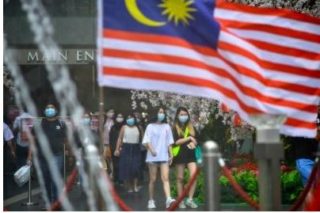
Kuala Lumpur, Aug 2 (IANS) Despite poor manufacturing Purchasing Managers’ Index (PMI) reading in July, economists still expect the recovery in Malaysia’s manufacturing sector.
Kenanga Research said in a note on Friday that it still expects the recovery in Malaysia’s manufacturing sector especially the export-oriented industries, to gain momentum in the second half of the year.
According to the research house, this optimism is driven by the anticipated technology upcycle, fueled by higher demand for artificial intelligence (AI) and various stimulus measures in China.
However, downside risks persist, particularly from external factors like renewed global trade tensions, the escalating Middle East crisis and the prolonged Russia-Ukraine war, which continue to weigh on the global supply chains and demand, it said.
However, given the better-than-expected second quarter gross domestic product (GDP) growth in Malaysia, Kenanga maintained its bullish outlook on Malaysia’s full year GDP growth.
“We expect it to settle near our upper-end target range of 4.5 percent to 5 percent, thanks to strong domestic demand and continued expansion in the services sector,” it said, Xinhua news agency reported.
MIDF Research also said in a note on Friday that it still projected better external trade performance for Malaysia in the second half.
It reiterated its projection for Malaysia’s exports of goods to rebound and expand by 5.2 percent in 2024.
According to MIDF Research, the dip in Malaysia’s PMI also aligns with the deterioration seen in other countries.
PublicInvest Research projected Malaysia’s exports to increase by 5.4 percent year on year in 2024.
The positive outlook is bolstered by enhanced economic governance and an improved competitiveness ranking, it noted.
Malaysia’s PMI is expected to align with global trends, surpassing the 50-level mark in the second half, assuming the stabilization of global uncertainties, according to the research house.
The S&P Global Market Intelligence said on Thursday that Malaysia’s manufacturing PMI fell to a three-month low of 49.7 in July from 49.9 in June, amid renewed moderation in new orders, signaling a fractional moderation in the health of the sector.

























